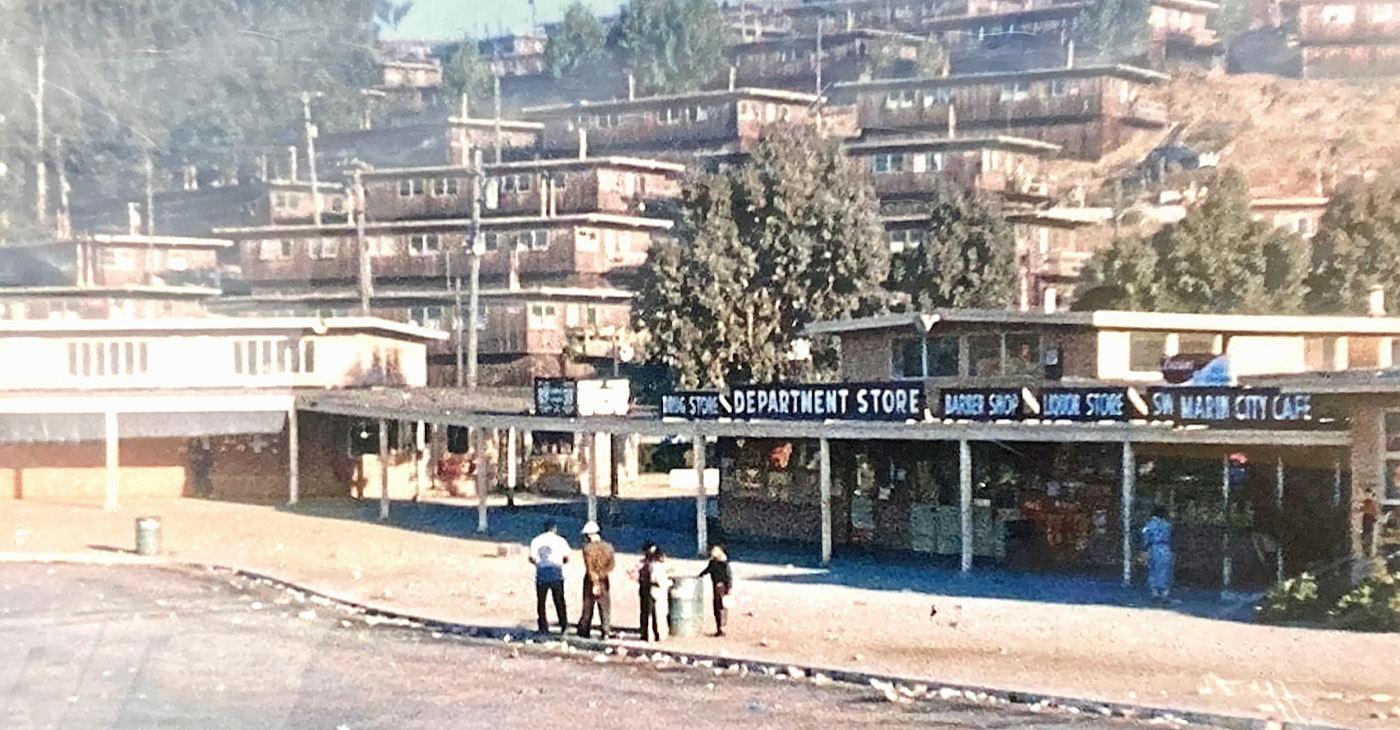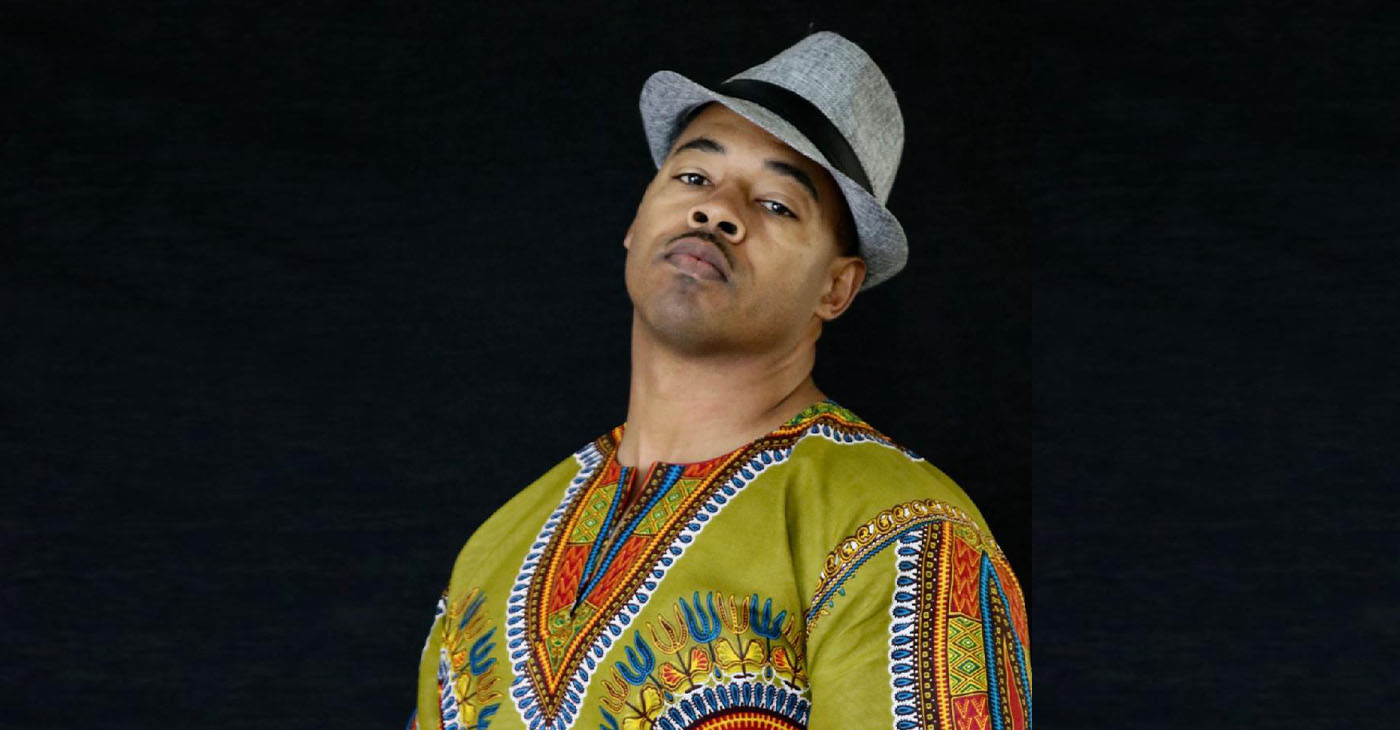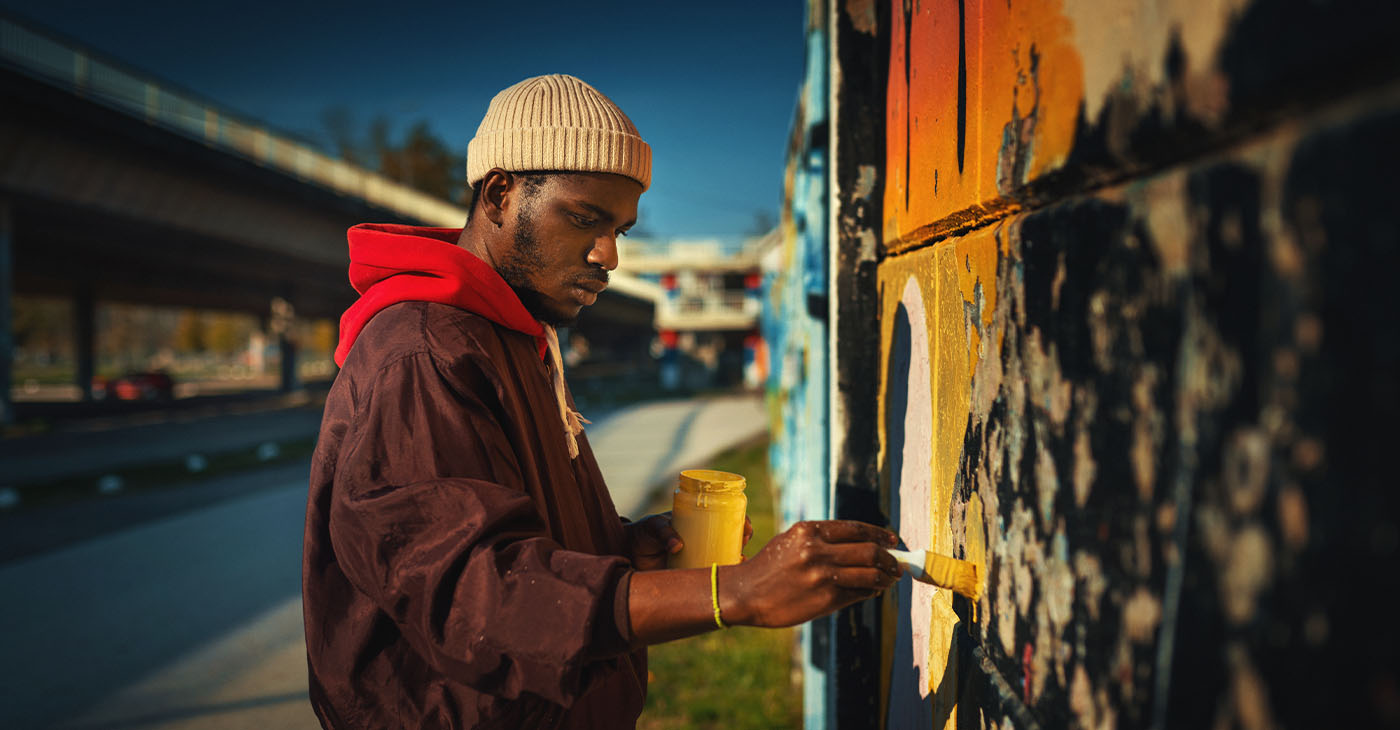Art
My Park Moment Photo show opens in San Francisco Presidio
While a lot of establishments such as restaurants, movies, amusement parks and places where people gather were closed for the past 18 months because of COVID-19, one of the few places people were able to enjoy themselves was at parks.

While a lot of establishments such as restaurants, movies, amusement parks and places where people gather were closed for the past 18 months because of COVID-19, one of the few places people were able to enjoy themselves was at parks.
The New York based non-profit Photoville wanted to highlight this. With a partnership with the San Francisco Presidio Trust, Photoville presented the My Park Moment photo show, which celebrates people loving parks.
The photo show features pictures of people at parks throughout the United States. The exhibit at the Presidio is spread out over 14 acres of new parkland with trails over tunnel tops creating scenic overlooks and picnic sites in a dramatic display of public art. It will be up from now until August of 2022.
“This exhibit is a celebration of community,” said Michael Boland, chief Park Development and Visitor Engagement officer at Presidio Trust. “It shows how we as Americans can enjoy open spaces. How people can have fun, get fit, fall in love and do a lot of things outside at parks.”
There were 7,000 photo submissions from professional photographers to people with cell phones, of which 400 were selected for the exhibit. The photos were picked by a committee of artists, photographers, and cultural critics from throughout the Bay Area.
Outside of the 400 pictures used in the show, four photographers who submitted multiple works were given stipends and highlighted for their work as Visual Story Award winners.
One of the Visual Story Award winners was Sheilby Macena, an Oakland photographer, who has 12 pictures in the My Park Moment exhibit. Her work focuses on the citizens of Oakland and specifically, the merchants at Lake Merritt during the pandemic.
“My work comes from the exhibit Black Joy at Lake Merritt, which shows Black people at the Lake, during the pandemic, particularly along sellers’ row,” said Macena.
Sellers Row was a group of 20 to 50 vendors who set up along Grand Avenue and Lake Shore Drive in Oakland by Lake Merritt. This scene would often conflict with many of the new residents in the area.
“My pictures showed Black life and it was a great way to document folks. It was a fun time, but you knew it wasn’t going to last,” continued Macena.
It didn’t. Nearby residents complained and media attention was brought to the Lake. Today, vendors at the Lake are required to have permits and there is a heavier police presence then what was taking place during the pandemic.
“The pandemic was hard on people and parks,” continued Boland. “Parks for some were the only outlet for people.”
Marissa Leshnov also had her work featured in the Presidio exhibit one Visual Story Award winners. Her work profiled the Oakland OMies, which showed a group of Black women practicing restorative yoga in the Presidio.
“These women came together as Black women, supporting each other and promoting wellness,” said Leshnov. “It’s important that people see themselves reflected in the art and I hope this brings people out to the Presidio to see the exhibit.”
The San Francisco Post’s coverage of local news in San Francisco County is supported by the Ethnic Media Sustainability Initiative, a program created by California Black Media and Ethnic Media Services to support community newspapers across California.
Art
Marin County: A Snapshot of California’s Black History Is on Display
The Marin County Office of Education, located at 1111 Las Gallinas Ave in San Rafael, will host the extraordinary exhibit, “The Legacy of Marin City: A California Black History Story (1942-1960),” from Feb. 1 to May 31, 2024. The interactive, historical, and immersive exhibit featuring memorabilia from Black shipyard workers who migrated from the South to the West Coast to work at the Marinship shipyard will provide an enriching experience for students and school staff. Community organizations will also be invited to tour the exhibit.

By Post Staff
The Marin County Office of Education, located at 1111 Las Gallinas Ave in San Rafael, will host the extraordinary exhibit, “The Legacy of Marin City: A California Black History Story (1942-1960),” from Feb. 1 to May 31, 2024.
The interactive, historical, and immersive exhibit featuring memorabilia from Black shipyard workers who migrated from the South to the West Coast to work at the Marinship shipyard will provide an enriching experience for students and school staff. Community organizations will also be invited to tour the exhibit.
All will have the opportunity to visit and be guided by its curator Felecia Gaston.
The exhibit will include photographs, articles and artifacts about the Black experience in Marin City from 1942 to 1960 from the Felecia Gaston Collection, the Anne T. Kent California Room Collection, The Ruth Marion and Pirkle Jones Collection, The Bancroft Library, and the Daniel Ruark Collection.
It also features contemporary original artwork by Chuck D of the Rock and Roll Hall of Fame group Public Enemy, clay sculptures by San Francisco-based artist Kaytea Petro, and art pieces made by Marin City youth in collaboration with Lynn Sondag, Associate Professor of Art at Dominican University of California.
The exhibit explores how Marin City residents endured housing inequities over the years and captures the history of plans to remove Black residents from the area after World War II. Throughout, it embodies the spirit of survival and endurance that emboldened the people who made Marin City home.
Felecia Gaston is the author of the commemorative book, ‘A Brand New Start…This is Home: The Story of World War II Marinship and the Legacy of Marin City.’ Thanks to the generous contribution of benefactors, a set of Felecia’s book will be placed in every public elementary, middle, and high school library in Marin.
In addition, educators and librarians at each school will have the opportunity to engage with Felecia in a review of best practices for utilizing the valuable primary sources within the book.
“Our goal is to provide students with the opportunity to learn from these significant and historical contributions to Marin County, California, and the United States,” said John Carroll, Marin County Superintendent of Schools.
“By engaging with Felecia’s book and then visiting the exhibit, students will be able to further connect their knowledge and gain a deeper understanding of this significant historical period,” Carroll continued.
Felecia Gaston adds, “The Marin County Office of Education’s decision to bring the Marin City Historical Traveling Exhibit and publication, ‘A Brand New Start…This is Home’ to young students is intentional and plays a substantial role in the educational world. It is imperative that our community knows the contributions of Marin City Black residents to Marin County. Our youth are best placed to lead this transformation.”
The Marin County Office of Education will host an Open House Reception of the exhibit’s debut on Feb. 1 from 4 p.m. – 6 p.m.. All school staff, educators, librarians, and community members are encouraged to attend to preview the exhibit and connect with Felecia Gaston. To contact Gaston, email MarinCityLegacy@marinschools.org
Activism
Alternative Outcome to Slayings by Police Explored in One-Man Play
BLACK MEN EVERYWHERE! is the explosive new one man play written, directed, and performed by Jinho “Piper” Ferreira. Set against the backdrop of a presidential election, the play explores how political and cultural leaders wield the myth of the dangerous Black man to manipulate the masses for personal gain. Piper penned the follow-up to his ground-breaking solo play, “Cops and Robbers,” after an impromptu cross-country Black history tour.

Special to The Post
What would happen if police officers who have gotten off for killing unarmed Black people started turning up dead?
BLACK MEN EVERYWHERE! is the explosive new one man play written, directed, and performed by Jinho “Piper” Ferreira. Set against the backdrop of a presidential election, the play explores how political and cultural leaders wield the myth of the dangerous Black man to manipulate the masses for personal gain.
Piper penned the follow-up to his ground-breaking solo play, “Cops and Robbers,” after an impromptu cross-country Black history tour.
“My wife and I had been talking about it for years,” Ferreira said. They had taken their three children to Brazil several times and West Africa but had yet to explore their history as Black people in this country. “It was Juneteenth last year and I realized we had a few weeks to make it happen, so we just jumped in the car and left” Piper said.
Three weeks later the family had seen everything from the African American Museum of History and Culture in Wash., D.C., to the phenomenally preserved Whitney Plantation in Louisiana. They’d stood outside of the balcony of the Lorraine Hotel where Dr. Martin Luther King Jr. was assassinated in Memphis, Tenn., walked across the Edmund Pettus Bridge in Selma, Ala., and paid their respects at the Africa Town cemetery – where the passengers of the Clotilda (the last known U.S. slave ship to smuggle captured Africans into this country) were buried near Mobile, Ala.
“We had the kids keep a journal of the trip and my wife and I took notes, but once we got back home, I knew I had to make the pen move,” he said.
Ferreira plays 21 characters in the 60-minute emotional roller coaster ride; personalities we all know. While brilliantly weaving in themes of revolution, treachery, and revenge, “Black Men Everywhere!” is surprisingly — more than anything else — a love story.
“I wrote the play for Black men and everyone who loves us,” Ferreira said. “The play is narrated by a sistah and performed in front of the deeply spiritual artwork of Nedra T. Williams, an Oakland priestess of Olokun. It’s called ‘Black Men Everywhere!’ but we don’t exist without the Black woman.”
For tickets, please go to: http://tinyurl.com/5dm3mhra
Art
City of Stockton Seeks Applications for Public Art Murals
The City of Stockton Arts Commission (SAC) has announced the opportunity for artist(s) and/or artist teams to apply to design and paint original artwork on City-owned property through a Public Art Mural Program. The deadline for applications is Friday, March 8, 2024, at 5 p.m. Applications and additional information are available online at www.stocktonca.gov/publicart.

City of Stockton
The City of Stockton Arts Commission (SAC) has announced the opportunity for artist(s) and/or artist teams to apply to design and paint original artwork on City-owned property through a Public Art Mural Program.
The deadline for applications is Friday, March 8, 2024, at 5 p.m. Applications and additional information are available online at www.stocktonca.gov/publicart.
The Public Art Mural Program incentivizes mural installations by providing city funding and the means of curating the City’s collection of murals.
This program has $50,000 in available funds for artist(s) and is also available for those who have already identified funds and would like to complete a mural project on city-owned property. Applications will be reviewed on a competitive basis and selected by the SAC.
To learn more about the Stockton Arts Commission (SAC) or qualifications and eligibility for Public Art Mural Program, please visit www.stocktonca.gov/publicart or call the Community Services Department at (209) 937-8206.
-

 Activism4 weeks ago
Activism4 weeks agoOakland Post: Week of March 27 – April 2, 2024
-

 #NNPA BlackPress4 weeks ago
#NNPA BlackPress4 weeks agoBeloved Actor and Activist Louis Cameron Gossett Jr. Dies at 87
-

 Community1 week ago
Community1 week agoFinancial Assistance Bill for Descendants of Enslaved Persons to Help Them Purchase, Own, or Maintain a Home
-

 Activism3 weeks ago
Activism3 weeks agoOakland Post: Week of April 3 – 6, 2024
-

 Business2 weeks ago
Business2 weeks agoV.P. Kamala Harris: Americans With Criminal Records Will Soon Be Eligible for SBA Loans
-

 Activism2 weeks ago
Activism2 weeks agoOakland Post: Week of April 10 – 16, 2024
-

 Community2 weeks ago
Community2 weeks agoAG Bonta Says Oakland School Leaders Should Comply with State Laws to Avoid ‘Disparate Harm’ When Closing or Merging Schools
-

 Community7 days ago
Community7 days agoOakland WNBA Player to be Inducted Into Hall of Fame




















































